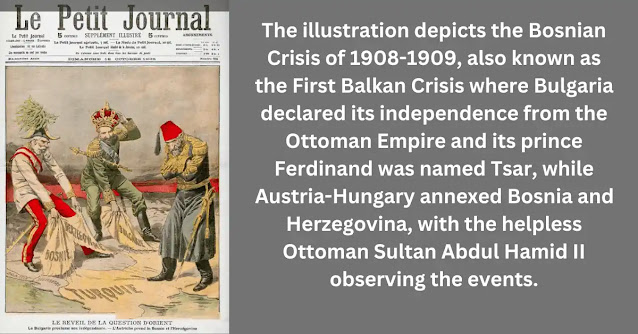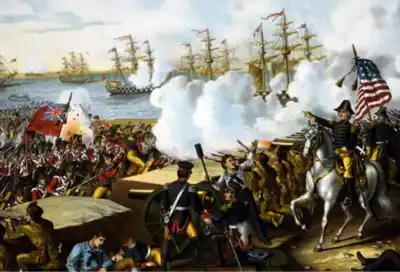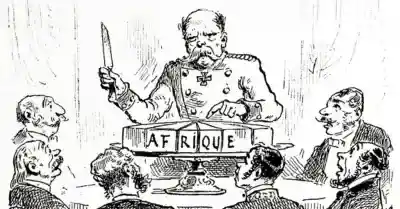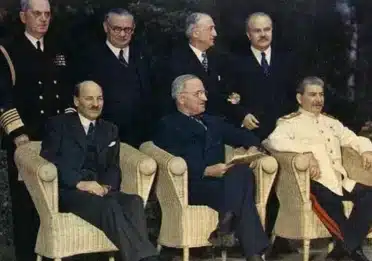From Ottoman Rule to Sovereignty: The Story of Greek Independence
The Battle of Navarino, a pivotal naval fight on October 20, 1827, played a crucial role in ending nearly 400 years of Turkish rule and securing Greek sovereignty. At that time, Greece was struggling to become independent and govern itself. The battle took place in Navarino Bay, which is in the southwestern part of Greece.
The battle involved a fleet of ships from different countries, including Britain, France, and Russia, helping the Greek people in their fight for freedom. The combined forces defeated the Turkish and Egyptian fleets, which were trying to control Greece.
The Battle of Navarino was a turning point in the Greek War of Independence. It weakened the Ottoman Empire’s hold on Greece and was a big step toward Greece gaining its independence. This was a significant moment in Greek history, as it marked the beginning of the end of centuries of Turkish rule. This article underscores the Battle of Navarino as a pivotal event in Greek history that significantly contributed to Greece’s path to independence and the eventual end of Turkish rule.
 |
| Greek War of Independence |
💻 Table of Contents:
The Greek War of Independence: A Fight for National Identity:
To grasp the significance of the Battle of Navarino, it’s essential to understand the context in which it unfolded. For centuries, Greece had been a part of the vast Ottoman Empire, which had conquered the region following the fall of Constantinoplein 1453. Throughout this extended period of foreign rule, the Greek people managed to preserve their culture, language, and identity. The Greek people had a strong wish to be independent. They held onto their culture, history, and identity, and they wanted to govern themselves. This desire grew quietly over time, fueled by their rich history and united belief.
However, the winds of change began to blow in the late 18th century, as the Enlightenment and the ideals of the French Revolution vibrated throughout Europe. Inspired by these ideas, the Greek independence movement gained force, fueled by the desire to reclaim their cultural heritage and national identity.
By the early 19th century, the Greek War of Independence had exploded, driven by a growing desire among the Greek population to liberate their homeland from Ottoman control (Ottoman Greece). The fight for independence was not merely a military struggle; it was a battle to reclaim a national identity, heritage, and the right to self-determination. “Eleftheria i thanatos,” which translates to “Freedom or Death,” is Greece’s motto. This motto originated in songs that provided inspiration and motivation for people to fight for their independence. In 1814, a secretive organization called the Filiki Eteria, formed with the specific goal of ending Ottoman rule, chose this motto for their mission.
The Greek War of Independence broke out in 1821, with episodic rebellions against Ottoman rule. The Ottoman Empire responded with brutal force, suppressing the rebellion and imposing severe sufferings on the Greek population. The conflict attracted international attention, with various European powers sympathetic to the Greek cause. Among these powers were the United Kingdom, France, and Russia, who saw an opportunity to challenge Ottoman dominance in the region and advance their own geopolitical interests.
 |
| British Naval at the battle of Navarino |
Great Powers’ Intervention: Balancing Interests and Preserving Stability
In the 19th century, the Russian Empirewanted to expand at the cost of the weakening Ottoman Empire, causing concern among other European powers. They worried about Russian dominance in the Eastern Mediterranean and the potential collapse of the Ottoman Empire. The situation escalated when some Orthodox Russians supported their Greek counterparts during the Greek rebellion against the Ottomans in 1821, despite opposition from Tsar Alexander I.
You May Also Read:
- Suleiman the Magnificent: Architect of Ottoman Dominance in Hungary
- The Second Balkan War: Redrawing the Map of Southeastern Europe
British public opinion strongly favored the Greeks, even though the official British stance aimed to maintain the Ottoman Empire. To prevent Russia from taking one-sided action, Britain and France formed a treaty with Russia. This joint intervention sought to secure Greek autonomy while preserving the territorial integrity of the Ottoman Empire as a check against Russian influence.
The intervention was driven by a complex balance of interests, with Russia’s expansionist ambitions and the desire to support their fellow Orthodox Christians in Greece. Meanwhile, Britain and France aimed to maintain stability in the region and prevent Russian supremacy. Ultimately, the intervention had the goal of securing Greek independence while ensuring the overall political balance in the Eastern Mediterranean.
The Treaty of London (1827): Greece’s Independence Deal
On July 6, 1827, three major countries – Great Britain, France, and Russia – signed the Treaty of London. Their goal was to end the conflict between Greece and the Ottoman Empire. Since 1821, Greece had been in rebellion against Ottoman rule, and these powerful nations decided to support the Greeks.
The treaty aimed to establish Greece’s independence while keeping the Ottoman Sultan in charge. The three countries wanted to act as mediators between the Greeks and the Ottomans. According to the treaty, Greece would have a connection to the Ottoman Empire and pay them money.
If the Sultan Mahmud II rejected peace, the treaty outlined what would happen next. The Sultan had one month to agree to peace, or the powerful countries would start doing business with the Greeks. If the Sultan continued to fight, the Allies would use force to compel him to cease hostilities.
 |
| Battle of Navarino |
The Ottoman Empire, thinking it had a stronger navy, said no to the Treaty of London. This treaty allowed the three European powers to help Greece. Then, in the big naval battle at Navarino on October 20, 1827, the Allies defeated the Ottoman and Egyptian fleet, making Greece independent.
Naval Warfare in the Mediterranean: The Battle of Navarino
The Ottoman Empire, thinking it had a stronger navy, said no to the Treaty of London. This treaty allowed the three European powers to help Greece. Then, in the big naval battle at Navarino on October 20, 1827, the Allies defeated the Ottoman and Egyptian fleet, making Greece independent.
The Battle of Navarion was a pivotal event in the Greek War of Independence. It unfolded when the combined fleet of the European powers entered the Bay of Navarino, off the southwestern coast of the Peloponnese peninsula. The Ottoman fleet, anchored in the bay, consisted of around 80 ships, including powerful warships and smaller vessels.
The European fleet, commanded by British Admiral Sir Edward Codrington, French Admiral Henri de Rigny, and Russian Admiral Lodewijk van Heiden, numbered around 50 ships. The intention of the European fleet was to neutralize the Ottoman naval power and provide support to the Greek revolutionaries on land.
Initially, negotiations were attempted to defuse tensions, but they failed, and the battle commenced. The Ottoman fleet, underestimating the strength and resolve of the European forces, launched an attack. However, the combined European fleet’s superior firepower and strategic positioning quickly turned the tide in their favor.
The battle raged for several hours, with intense naval bombardment and close-quarters combat. The Ottoman fleet suffered heavy losses, with many of their ships damaged or destroyed. The Europeans, on the other hand, suffered minimal casualties but inflicted significant damage on the Ottoman naval forces.
 |
| Ottoman Empire Turkish Map |
Russo-Turkish War: Catalyst for Greek Independence
Even though there were celebrations, the Ottoman Sultan still had about 40,000 soldiers in central and southern Greece, hiding in strong fortresses. Greece’s full freedom was still far away, unless the Ottomans agreed to the Treaty of London.
In April 1828, Russia declared war on the Ottomans, starting the 11th Russo-Turkish War. The Russian army, with 100,000 soldiers, defeated the Ottoman forces in places like Romania and crossed the Danube. They besieged Silistra, Varna, and Shumla, which were important Ottoman forts in Bulgaria.
In September 1829, the Ottoman Sultan had to give in because the Russian army was very close to his palace, just 40 miles away. He agreed to many things the Russians wanted in the Treaty of Adrianople, including accepting Greek autonomy as mentioned in the Treaty of London. But this acceptance couldn’t save the Ottoman rule over Greece.
The Greeks, feeling confident because of their victories and the Ottomans’ losses, didn’t want anything less than full independence. Finally, in the London Protocol of 1830, the Allies changed their policy and accepted that Greece would be independent instead of being under Ottoman control.
Later in that same year, the Sultan had to sign the Treaty of Constantinople (1832)in which he officially recognized the new Kingdom of Greece as an independent country because the powerful nations made him do it.
 |
| The Members of Filiki Eteria |
Conclusion:
The Battle of Navarino was a resounding victory for the European powers, effectively ending Ottoman Turkish control over Greece and providing a crucial boost to the Greek independence movement. The Ottoman fleet was devastated, and the surviving ships were forced to retreat. The battle’s significance lay in its demonstration of the waning power of the Ottoman Empire and the growing influence of European nations in the region.
The aftermath of the battle saw a significant shift in the political landscape of Greece. The borders of the new Greek nation were determined, and a constitutional monarchy was established, with Prince Otto of Bavariabecoming the first king of Greece. The combined forces of the United Kingdom, France, and Russia demonstrated their military strength and political influence, effectively paving the way for an independent Greek state. Today, the Battle of Navarino stands as a testament to the resilience and determination of the Greek people and their successful struggle for independence.
Frequently Asked Questions
The Battle of Navarino, fought on October 20, 1827, played a crucial role in ending nearly 400 years of Turkish rule in Greece and supporting Greece's struggle for independence.
The Battle of Navarino involved a combined fleet from Britain, France, and Russia, who supported the Greek fight for freedom and defeated the Turkish and Egyptian fleets.
Greece was part of the Ottoman Empire for centuries, following the empire's conquest of the region after the fall of Constantinople in 1453.
The Treaty of Adrianople forced the Ottoman Sultan to accept Greek autonomy, among other Russian demands, due to the Russian army's proximity to Istanbul.
The London Protocol of 1830 marked a shift in Allied policy, recognizing Greece as an independent nation rather than an autonomous region under Ottoman control.
The Treaty of Constantinople (1832) officially recognized the Kingdom of Greece as an independent country, as the Ottoman Sultan was compelled to sign it under pressure from powerful nations. What was the significance of the Battle of Navarino?
Which countries participated in the Battle of Navarino?
How long was Greece part of the Ottoman Empire?
What were the key outcomes of the Treaty of Adrianople in 1829?
How did the London Protocol of 1830 impact Greece?
What was the significance of the Treaty of Constantinople in 1832?









